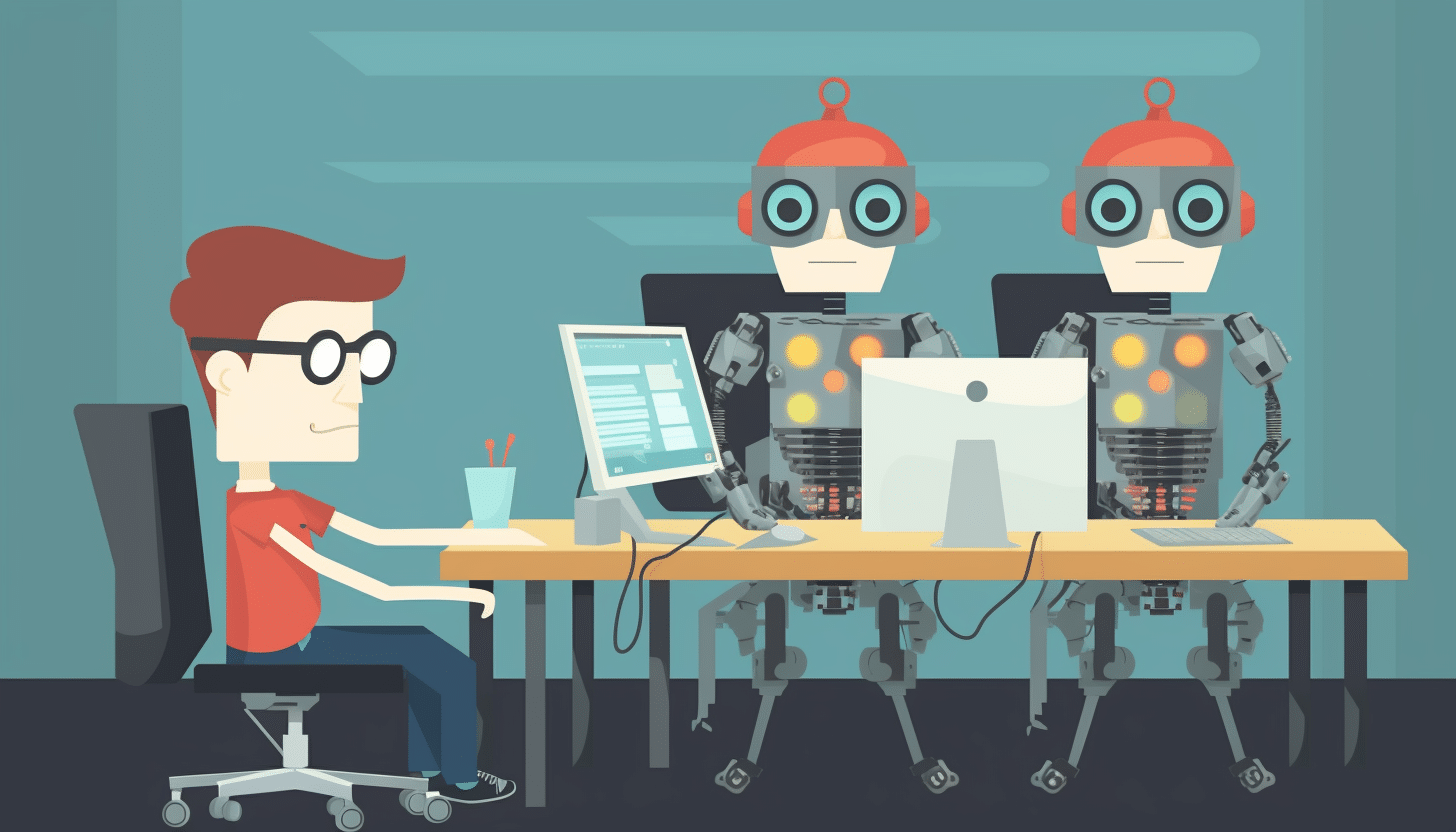Will AI change the makeup of software development teams?

With the increased popularity of artificial intelligence technology, many human workers have expressed concern that AI models will replace them or make their positions obsolete. This is particularly the case with occupations like coding and software design, where artificial intelligence has the opportunity to automate several essential processes. Although AI is a powerful tool that has the potential to revolutionize the coding process, the role of human workers is still invaluable, as this technology is still in its infancy.
Software development teams are among the ranks of workers most profoundly affected by the AI revolution. Some of the ways in which software development teams have begun to use artificial intelligence include:
- Writing code: Artificial intelligence tools are being developed that can become an integral part of the coding process. For example, there can be a sort of “autofill” that finishes the code a developer writes after they begin it. Other tools allow developers to write code in natural language and automate the conversion to software code.
- Project management: Software development teams can use artificial intelligence in the project management process. Coding projects are multifaceted and often involve multiple individuals and teams working on different pieces of the project simultaneously. By automating communication between teams using AI, collaboration can be made more effective and efficient.
- Quality assurance (QA): Because artificial intelligence has superior data analysis capabilities compared to humans, AI models can improve the QA process. QA in software development often requires manually running through several lines of code and fixing errors one by one -- a process that AI can streamline.
Benefits of AI in software development
Obviously, the key benefit of adopting artificial intelligence in the coding process is that it will enable greater efficiency for coders. AI can automate some of the more repetitive tasks of the coding process, such as debugging or removing duplicates. With this, human developers can focus on other tasks that require human input, such as strategic planning and creative problem-solving.
Another significant effect of the proliferation of artificial intelligence technology in the coding profession is that it will make it easier for more people to write code. Everyone, from newbie programmers to those with no coding experience, can now have the power to write code -- even if they do not deeply understand the code generated by the artificial intelligence program.
The process itself will change as well. One of the more prominent shifts we will see is software testing becoming an integral part of the development process. Because AI makes coding more efficient, more code can be written in less time. Quality engineering (QE) and software engineers in test (SDET) teams will become integral parts of the development team instead of a separate, standalone team performing quality checks and manual software testing. We may see the automation of the software testing process streamlining the process.
We will also see the coding language evolve as the use of artificial intelligence technology in the coding and design process increases. For example, higher-order coding languages will become more prominent as artificial intelligence tools will allow more people to use and understand these coding languages without advanced training. In effect, AI will also enable the creation of more low-code and no-code tools and the use of these tools in plain English.
Effects of software development on team size
In terms of software development teams, we can expect team sizes to get larger in the immediate short term. The adoption of a new tool like artificial intelligence will require the employment of “coaches” to help make the transition as smooth as possible and assist coders in cross-checking the output of the artificial intelligence program.
Eventually, as teams develop AI prompt engineering skills and become more productive -- which will likely take years -- team sizes will eventually become smaller. With the proper tools and efficient use, three engineers will be able to deliver the amount of code that five or six engineers could produce in the past.
Ultimately, as is the case with virtually every industry, artificial intelligence should be considered a tool to increase productivity, not a replacement for human workers. If anything, artificial intelligence could allow more people to become software developers rather than reduce these jobs. Existing software developers will become more productive and efficient. At the same time, people who were previously unable to learn and navigate the complexities of coding will now be able to take up the profession.
Artificial intelligence technology is poised to revolutionize virtually every industry, including software development. With effects including more efficiency, the democratization of writing code, and a transition in the development process itself, coders who hope to streamline their operations should embrace this powerful technology now, while they have the opportunity to be ahead of the curve and gain a competitive advantage over their competitors.

Ed Watal is the founder and principal of Intellibus, an INC 5000 Top 100 Software firm based in Reston, Virginia. He regularly serves as a board advisor to the world’s largest financial institutions. C-level executives rely on him for IT strategy & architecture due to his business acumen & deep IT knowledge. One of Ed's key projects includes BigParser (an Ethical AI Platform and an A Data Commons for the World). He has also built and sold several Tech & AI startups. Ed has substantial teaching experience and has served as a lecturer for universities globally, including NYU and Stanford. Ed has been featured on Fox News,Information Week, andNewsNation.
